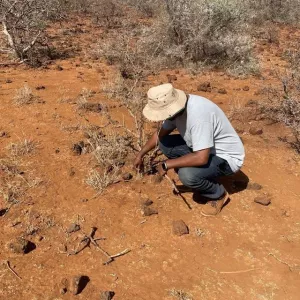Drought Intensifies for the Pastoralist communities in Ethiopia
by Sintayehu Alemayehu and Sintayehu Workeneh (PhD) Ethiopia is a home of about 15 million pastoralists and is ranked 5th in the world. Oromia region is one of the regions in Ethiopia with a large number of pastoral and agro-pastoral communities. Most of the communities in zone are pastoralist and agro-pastoralist, and therefore, are reliant on livestock as both a

Drought Intensifies for the Pastoralist communities in Ethiopia
by Sintayehu Alemayehu and Sintayehu Workeneh (PhD)
Ethiopia is a home of about 15 million pastoralists and is ranked 5th in the world. Oromia region is one of the regions in Ethiopia with a large number of pastoral and agro-pastoral communities. Most of the communities in zone are pastoralist and agro-pastoralist, and therefore, are reliant on livestock as both a source of income and food. Livestock is also a symbol of pride and social status for families and communities. The zone have been experiencing one of the most severe climate change induced droughts following four consecutive failed rainy seasons since late 2020 which results in massive livestock deaths, disrupts the flow of income and food sources for pastoralists. It is one of the worst droughts in the area of the last 40 years.
The Alliance of Bioversity International and The International Center for Tropical Agriculture team recently conducted a fieldwork to drought-affected areas of Borena Zone to assess the current status of water points as part of livestock water source monitoring and risk management system project funded by Bill and Melinda Gates Foundation (BMGF).

